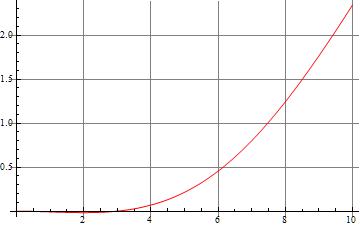I am trying to solve a ODE related to its boundary value with NDSolve
NDSolve[
{f'''[x] + 1/2*f[x]*f''[x] + f''[0] == 0,
f'[0] == 0, f[0] == 0, f'[1000] == 1},
f, {x, 0, 10}]
The error message is:
NDSolve::litarg: To avoid possible ambiguity, the arguments of the dependent variable in {(f^′′)[0]+1/2 f[η] (f^′′)[η]+(f^(3))[η]==0} should literally match the independent variables.
I guess the issue is that I cannot define the boundary value within the equation in this way. How could I add this term into equation and solve it?


f''[0]doing in the ODE itself? This is a constant. So you could just as well writeNDSolve[{f'''[x]+1/2*f[x]*f''[x]+c==0.....or may be you meant to have it in the B.C. but then you have too many boundary conditions $\endgroup$f''[0]is unknown. The ODE is still with three boundary conditions $\endgroup$